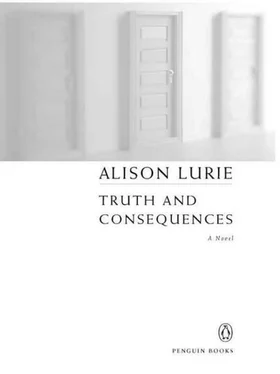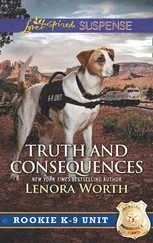“Yeah,” Alan agreed. “About one-quarter the size, of course.”
“It’s wonderful,” she breathed.
“Thank you.”
“Most people don’t recognize it.” And they don’t always think it’s wonderful, either, he remembered. Jane, for instance, did not think so. When he had first shown her the drawings, she had seen them as a mildly entertaining joke, but once she realized that he was actually going to build the thing in their back yard she was clearly puzzled and dismayed, though she had never openly said so.
“I knew it at once,” Delia said. “My best friend in school moved to New York when I was about seven, and she sent me a postcard of that arch. I had it up on my wall at home for the longest time. I used to imagine I was a princess going to my coronation, and I would drive through Washington Square and under the arch in my golden coach.” She looked up at Alan with an uneven smile, as if she were about to weep. Then, blinking her long-lashed gray eyes, she glanced down.
“Oh, look at all these delicious little white flowers growing in the grass,” she said. “What are they called?”
“I haven’t any idea,” Alan admitted. “Jane would know. My wife. Have you met her?”
“Oh yes,” Delia said, smiling, and somehow this time her smile conveyed the idea that this had not been an especially exciting meeting.
“She could tell you their Latin name.”
“I don’t want to know their Latin name,” Delia said. “It’s bad enough knowing that my Latin name is Homo sapiens . I try to forget that sort of thing as fast as I can.” She began to walk around the arch, admiring it from all angles, trailing her gauzy skirts and silver net shawl in the long flowery grass. Alan, steadying himself with his cane, followed.
“Marvelous,” she murmured. “Are there any others? Someone told me there was at least one other.”
Alan hesitated. There was another folly, the ruined chapel, but except for Jane and the graduate students who had helped him, almost nobody had seen it. He had wanted to present it formally, as a completed project, and had often refused to allow spectators. “Well, there is one,” he admitted, not wanting to lie. “But I can’t show it to anyone yet, it’s not finished. I hurt my back, and then—”
“I must see it,” she interrupted.
“Not now.”
“Please.” Delia gave him an almost absurdly seductive smile.
“It wouldn’t be right. I’m sure you don’t publish your stories before they’re finished.”
“Please.” She pouted like a hurt child; her soft mauve-red lower lip trembled. “I’ll only be here in Corinth for a few months; I may never have another chance.”
“Well. All right,” Alan heard himself say. He led the way farther down the lawn, past two old apple trees and a tall, thorny mass of blackberry bushes that were now turning a dark, smoky red. “There you are.” He indicated a long shingled building with a low tower. Only part of the roof and two and a half walls were standing, the latter overgrown with a tangle of climbing roses. “I didn’t build the original structure,” he said. “It was the chicken house when this was a farm.”
“But now it’s a ruined church,” Delia said. “A miniature Tintern Abbey.”
“Yeah.”
She looked him full in the face, her silver eyes wide. “Amazing. You’re a real artist.”
“Thank you.” No, it’s not so bad, he thought, looking at the three miniature Victorian Gothic window frames he had installed along the side wall. Even if I never write another book, I can be proud of this.
“I want to walk around it.”
“All right.” Alan turned toward the blackberry bushes, but Delia did not follow.
“No, no!” she cried. “We mustn’t go that way, that’s widdershins.”
“What?” He stopped.
“Widdershins, against the sun. You must never walk widdershins around a church.”
“Really? Why not?”
“What they say back home is, the Devil will carry you off. Or you could just disappear. It’s a superstition, of course. But you never know.” She laughed lightly.
“But this isn’t a real church,” Alan said. “It’s an abandoned chicken house. It’s not consecrated or anything.”
“Maybe. But I don’t want to do it anyhow.” She turned resolutely in the other direction, and Alan, shaking his head, followed her. Clearly, Delia Delaney was a flake. At the same time, though he was not and had never been superstitious, the memory came to him of the church in New Mexico where he had seen the lizard, and he recalled that he had in fact walked around it in what Delia Delaney, if she hadn’t just been joking, would consider the dangerous direction.
Completing the circuit, Delia stepped over a heap of grass into the center of the building. “ ‘Bare ruined choirs where late the sweet birds sang,’ ” she quoted, looking around.
“Well yes, I suppose so. Or clucked. After all, they were chickens.” He followed her, and they stood where the altar would have been—its absence, or presence, suggested by a hummock of stones, grass, and tangled dark-green creeper.
“I don’t recognize the original—is there one?”
“Yes, partly.” Alan had the sense that he was recklessly giving away secrets. “Thyme Chapel, on campus. It’s Victorian Gothic, built about 1880.”
“Oh. I haven’t seen that yet. I really haven’t seen anything on campus but the library and the Center. But your chapel is perfect anyhow.”
“It’s not finished, you know. I wanted to build up that third wall a bit more. And maybe fill in some of the windows with stained glass.”
“Yes, I can see it,” Delia breathed. “All purple and gold and cobalt blue, with swirling iridescent Tiffany flowers.”
“That’s sort of what I planned. There’s several like that in the campus chapel. But these would be original designs.”
“With the Holy Ghost as a white chicken.”
“That’s an idea.” Alan laughed. She’s witty as well as beautiful, he thought.
“I love the wild roses.”
“I can’t claim credit for that. They were always here. I think they were just waiting until the chickens left.”
“You’re lucky. And will there be more follies?”
“I don’t know. Not now. I once thought I might do the Plaza fountain, or an Italian Renaissance bridge over there by the brook.” He gestured widely and unwisely with his sore arm, and winced. “But then my back went out—” For almost fifteen minutes, Alan realized, he had forgotten that he was in pain.
“And after that?”
“Oh, I had plans for a lot more—drawings and site elevations and everything. But now—” As if he had deliberately recalled it, a spasm struck him: the lizard dug its claws deep into his spine. Suppressing an ugly moan, Alan turned aside, staring out toward the distant lake. He didn’t want to leave Delia, but he needed more codeine and he needed it now. “Listen, I’m sorry, but I’ve got to go back to the house,” he told her.
Slowly, leaning on his cane and breathing hard, not looking at Delia in the stupid hope that she would not look at him and see his ugly grimaces of pain, Alan made his way through the old apple trees. There were lumpy, unsprayed pale-green apples among the branches, and here and there he could see a spray of chrome yellow, predicting autumn. Delia, silent now, followed, her gauzy white skirts trailing in the long grass. As he started up the slope of the lawn, he saw Jane break away from a group of people and come toward him.
“I thought you’d gone inside,” she said. “Are you all right?”
“All right,” Alan lied, grinding his teeth against the pain. “I was showing Delia the ruin.” In this last word he heard another lie, one of omission—the omission of a single letter, the letter s . Unfortunately, he realized at once, it was a lie that would instantly be exposed.
Читать дальше







![Кэмерон Доки - Правда и ее последствия[Truth and Consequences]](/books/79610/kemeron-doki-pravda-i-ee-posledstviya-truth-and-con-thumb.webp)




